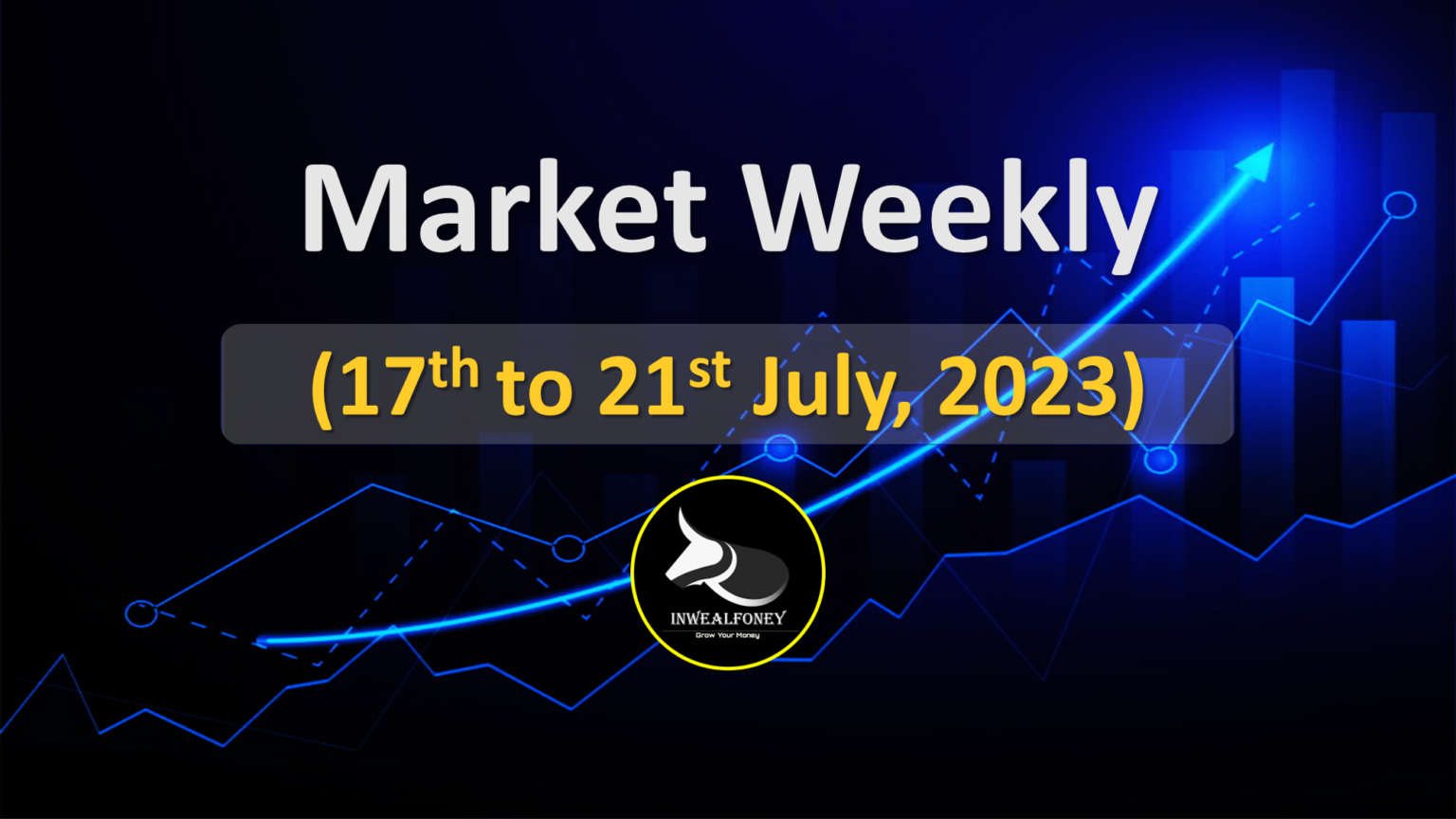Weekly Market Snap:



Key Highlights:
The domestic equity benchmarks closed the week with solid gains, marking the fourth consecutive week of growth.
The Sensex closed above the 66,600 level, while the Nifty settled just below the 19,750 mark.
The benchmark indices recorded gains in four out of five trading sessions during the week.
During the week ending Friday, 21 July 2023, the S&P BSE Sensex surged 623.36 points (0.94%) to close at 66,684.26, while the Nifty 50 index rose 180.5 points (0.92%) to reach 19,745. The BSE Mid-Cap index gained 0.52% to settle at 29,547.28, and the BSE Small-Cap index added 1.32% to close at 34,146.66.
According to the Reserve Bank of India's bulletin in July, India's real GDP must grow at a 7.6% annual rate over the next 25 years to achieve developed economy status.
The positive movement in the key equity indices was supported by favorable global conditions and consistent foreign inflows. The ongoing rally has been primarily influenced by the robustness of the US economy, which shows no indications of a recession.
The provisional payroll data from the Employees' State Insurance Corporation (ESIC) revealed the addition of 20.23 lakh (2.02 million) new employees in May 2023.
World Bank President Ajay Banga stated that India has a three-to-five-year window to take advantage of the China+1 opportunity as companies seek alternative manufacturing sites to diversify supply chains.
Oilmeal exports declined by 35% in June to 2,80,001 metric tonnes, primarily due to lower demand for rapeseed meals from overseas, as reported by the industry trade body Solvent Extractors' Association of India.
The International Monetary Fund notes that among the Group of 20 nations, headline inflation seems to have peaked. However, in most of the G20 countries, particularly the advanced economies, core inflation remains well above central banks' targets.
In the fight against inflation, the International Monetary Fund highlights early signs of monetary policy impacting activity, with bank lending standards tightening in the euro area and the United States.
The IMF predicts global growth over the medium-term to be around 3%, lower than the historical average of 3.8% recorded from 2000 to 2019.

